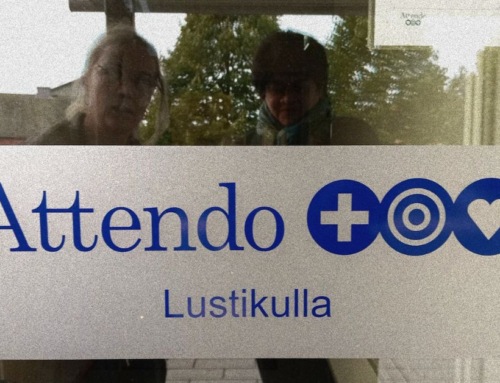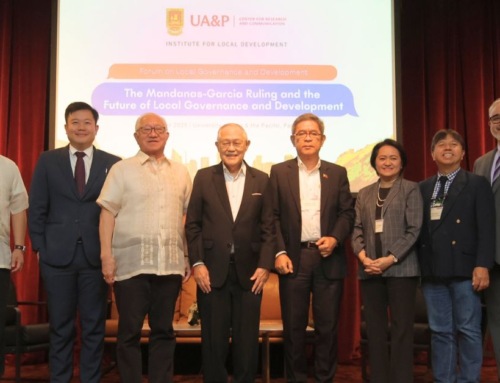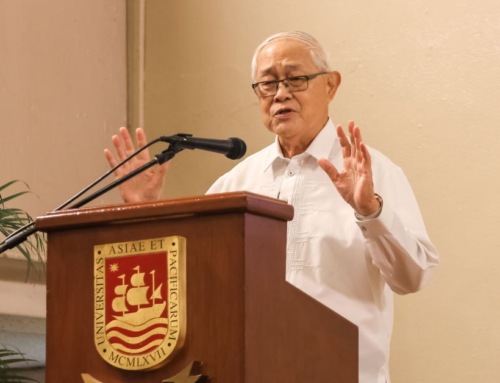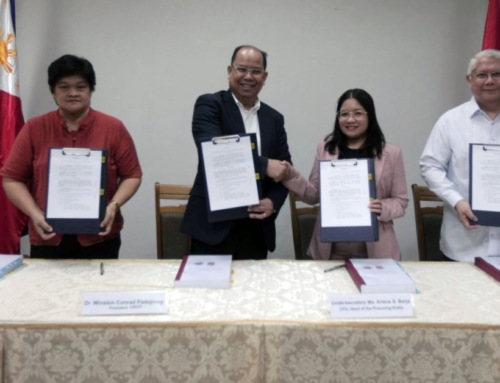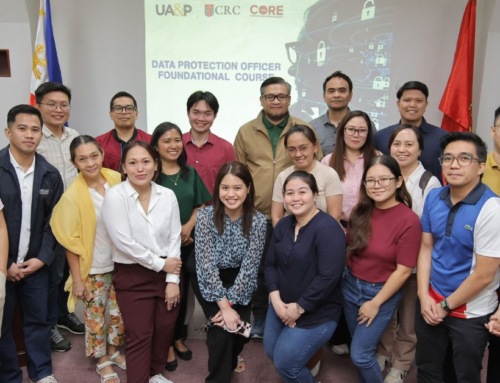[Update: Dr. Veronica Ramirez has been announced as the first prize winner of the 2019 APEC Healthy Women, Healthy Economies (HWHE) Research Prize. Detailed story to follow.]
PASIG, Philippines – As the economics of the 21st century makes it ever clearer how essential it is for women to join and thrive in the contemporary workforce, business leaders and policy makers in the 21 member countries of the Asia-Pacific Economic Cooperation (APEC) regional economic forum have become increasingly aware of how important it is to address women’s health issues.
But they haven’t always had an easy time figuring out exactly what that “something” ought to be.
When they try to identify and implement various measures to improve women’s health, they often find that they lack solid data and evidence necessary to make sound decisions about women’s health.
So when Dr. Veronica Esposo Ramirez presents her research on the Common Health Problems of Women Migrant Workers from the Philippines at the APEC Women and the Economy Forum in La Serena, Chile on October 1, 2019, some of APEC’s most influential business leaders and policy makers will be paying attention.
Presenting in Chile. Dr. Ramirez will be presenting in La Serena as one of three finalists for the 2019 APEC Healthy Women, Healthy Economies Research Prize – on the invitation of the Chilean Ministry of Women and Gender Equity and the Global Health Initiative of the German multinational pharmaceutical, chemical and life sciences company Merck KGaA.
An Associate Professor at the University of Asia and the Pacific (UA&P), Dr. Ramirez is the holder of the UA&P Professorial Chair for Migration and Overseas Filipino Work (MOFW) – a research initiative lodged at the Center for Research and Communication and funded by the Bank of the Philippine Islands (BPI) Foundation from 2014 to 2018.
The final winners of the award will be announced in November 2019 in Santiago, Chile at the annual Women Leaders’ APEC Roundtable during the 2019 APEC CEO Summit – the Asia-Pacific region’s most influential meeting of business and government leaders.
Launched this year after an announcement by Chilean President Sebastian Piñera in November 2018, the Research Prize is an annual accolade given under APEC’s Healthy Women, Healthy Economies (HWHE) initiative. It aims to highlight and promote the kind of research that will help policymakers and business leaders in APEC countries “identify gender-specific interventions appropriate for their economies and organizations.”
Common Health Risks. Dr. Ramirez’ research is based on a re-examination of data from her original study funded by the National Research Council of the Philippines, which investigated the common health problems among (land-based) Overseas Filipino Workers (OFWs), and their implications to prevention and health services. The research looked into the cases of 700 OFWs in the Middle East, Asia, Europe and in six regions of the Philippines; as well as OFWs’ utilization of medical benefits from OWWA and PhilHealth.
To specifically highlight the health concerns most often faced by OFW women, she reviewed all the data and focused specifically on the women OFWs.
She found that most of the diseases which women OFWs suffered from were conditions relating to the reproductive, urinary / excretory, and digestive systems. Specific reproductive health issues reported by the women included dysmenorrhea, irregular menstruation, abnormal discharge and painful urination.
She also found that although there were health services available to OFWs in the Middle East and Asia, many OFWs were unaware of their health benefits; had to travel from workplace to the health service centers only on their days off; feared that they might lose their jobs if they sought treatment; and tended to rely on self-medication to treat their health conditions.
Three categories of health-related measures. Dr. Ramirez recommended three health-related measures which could be done to benefit women OFWS. She recommended that Pre-Departure Orientation Seminars (PDOS) for OFWs be improved by adding information about health facilities and benefits available to them; health hazards that they may face in their desired country of work; and healthy lifestyle habits they should try to adopt. She also suggested health counseling and customized health programs for those who already have abnormal health conditions.
Dr. Ramirez also recommended the formulation and implementation of policies which respond to the specific health concerns of women OFWs. She suggested that government monitor and provide treatment for cases of OFWs with communicable diseases; provide a medical information campaign for good health practices specific to the most common diseases identified among OFWs; and expand health services in countries that don’t extend such services fully to foreign workers.
Lastly, Dr. Ramirez recommended the development of wellness programs for OFWs in specific kinds of work, such as Household Service or Domestic Work, Kitchen Crew, etc., given that the study found that their work and living conditions often cannot fully promote their welfare and wellness. • Remi E. De Leon/CRC
———————————————
Dr. Ramirez would like to acknowledge that data gathering for her study was done with the assistance of OWWA Regional Welfare Offices, Dr. Aimee Mercado, Bianca Raon and IRemit Global Remittance Centers).
Learn more about CRC’s contributions in Migration and Overseas Filipino Work. In this field, CRC has brought about in-depth insight into the lives of the millions Filipino migrant workers whose contributions make a sizeable chunk of the Philippine economy – from their education and recruitment in the Philippines to their concerns and life strategies while working overseas, to their successful reintegration upon returning to the country.
The Bank of the Philippine Islands (BPI) Foundation, Inc., established the BPI Professorial Chair for Migration and Overseas Filipino Work (MOFW) on February 3, 2014. For years, the holder of the professorial chair has been undertaking intensive research on migration and development to guide policy makers, and publish teaching resource materials on the integration of migration into the K-12 Basic Education Curriculum subjects.
To find out more about CRC, send an email to [email protected], or message +639054280727, or follow us on LinkedIn. You can also find us on Facebook.

